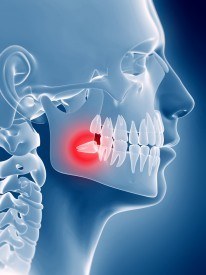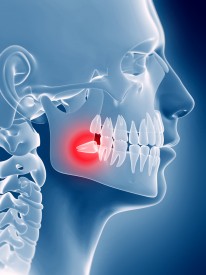
Experiencing wisdom tooth pain late at night? Wisdom tooth emergency removal can be an urgent. But not in all cases. The answer isn’t one-size-fits-all. Wisdom teeth, or third molars, can cause pain, swelling, and discomfort. Whether it’s an emergency depends on the severity. Intense pain, swelling, or difficulty in opening the mouth opening may signal infection or impacted wisdom tooth, requiring immediate dental care. Mild discomfort might not be urgent. Consult your dentist to evaluate your situation and decide on the best course of action. Wisdom tooth pain’s urgency hinges on its intensity, so don’t hesitate to seek professional advice for a peaceful night’s sleep.

Is Wisdom Tooth Pain a Dental Emergency?
Wisdom tooth pain can be a distressing experience, causing discomfort and affecting your daily activities. Many people wonder if wisdom tooth pain is a dental emergency and if they should seek immediate treatment. In this article, we will explore the nature of wisdom tooth pain and whether it qualifies as a dental emergency.
Understanding Wisdom Tooth Pain
Wisdom teeth, also known as third molars, are the last set of teeth to develop in the mouth. They usually emerge between the ages of 17 and 25, although this can vary from person to person. In some cases, wisdom teeth may grow in without causing any problems. However, more often than not, they can cause pain and discomfort due to various reasons such as impacted teeth, crowding, or infection.
When wisdom teeth are impacted, which means they don’t have enough space to fully emerge, they can push against the neighboring teeth, causing pain and swelling. This can also lead to infection or the formation of a cyst. If left untreated, wisdom tooth pain can worsen and lead to more severe complications.
Signs of Wisdom Tooth Pain
There are several signs and symptoms that indicate wisdom tooth pain. These include:
1. Persistent or throbbing pain in the back of the mouth
2. Swelling and redness around the affected area
3. Difficulty opening the mouth fully
4. Bad breath or an unpleasant taste in the mouth
5. Difficulty chewing or biting down
6. Headaches or earaches
If you experience any of these symptoms, it is important to consult a dentist to determine the cause of the pain and to receive appropriate treatment.
Is Wisdom Tooth Pain a Dental Emergency?
Whether wisdom tooth pain is considered a dental emergency depends on the severity of the symptoms and the underlying cause. In some cases, immediate attention may be necessary, while in others, it can be managed with at-home remedies until a dental appointment can be scheduled.
If you are experiencing severe pain, swelling, or difficulty breathing due to wisdom tooth pain, it is crucial to seek immediate dental care. These symptoms may indicate an infection or abscess, which require prompt treatment to prevent further complications.
On the other hand, if the pain is mild to moderate and does not interfere with your daily activities, it may not be considered a dental emergency. However, it is still important to schedule a dental appointment to have the issue assessed and determine the appropriate course of action.
Managing Wisdom Tooth Pain
While waiting for a dental appointment, there are several measures you can take to alleviate wisdom tooth pain and discomfort. These include:
1. Over-the-counter pain relievers: Nonsteroidal anti-inflammatory drugs (NSAIDs) such as ibuprofen can help reduce pain and swelling.
2. Saltwater rinses: Gargling with warm saltwater can help soothe the affected area and reduce inflammation.
3. Ice packs: Applying an ice pack to the outside of the cheek can provide temporary relief from pain and swelling.
4. Soft diet: Stick to soft foods that are easy to chew to avoid putting additional pressure on the affected area.
5. Proper oral hygiene: Brush and floss gently around the affected area to keep it clean and prevent infection.
It is important to note that these remedies provide temporary relief and do not address the underlying issue. Consulting a dentist is necessary to determine the best course of action for your specific situation.
When to Seek Professional Help
- Professional Evaluation:
- Seek professional help for wisdom tooth pain.
- Dentist assesses wisdom teeth condition and recommends suitable treatment.
- Possible Extraction:
- Wisdom teeth extraction may be necessary in some cases.
- Factors considered: tooth position, pain severity, and underlying infections.
- Risk of Ignoring or Self-Treating:
- Ignoring or self-treating can worsen symptoms.
- Potential for increased oral health problems.
- Importance of Professional Consultation:
- Always consult a dental professional for accurate diagnosis.
- Receive a personalized treatment plan for effective resolution.
Conclusion
In conclusion, wisdom tooth pain can be a dental emergency depending on the severity of the symptoms and the underlying cause. Severe pain, swelling, and difficulty breathing may require immediate dental care, while milder symptoms can be managed until a dental appointment can be scheduled. It is important to consult a dentist for an accurate diagnosis and appropriate treatment to alleviate wisdom tooth pain and prevent further complications. Remember, early intervention is key to maintaining good oral health.
Key Takeaways: Is Wisdom Tooth Pain a Dental Emergency?
- Wisdom tooth pain can be a dental emergency if it is accompanied by swelling or infection.
- If the pain is severe and affects your daily activities, it is important to seek immediate dental care.
- Ignoring wisdom tooth pain can lead to complications such as damage to surrounding teeth or the jawbone.
- Home remedies such as rinsing with warm saltwater or applying a cold compress can provide temporary relief.
- Visiting a dentist for an evaluation is the best way to determine if wisdom tooth extraction is necessary.
Frequently Asked Questions
What causes wisdom tooth pain?
Wisdom tooth pain is commonly caused by the eruption of the third molars, located at the back of the mouth. When these teeth do not have enough space to properly emerge, they can become impacted, leading to pain and discomfort. Additionally, wisdom tooth pain can be caused by infection, gum disease, or tooth decay in the surrounding area.
It is important to note that not everyone experiences wisdom tooth pain. Some individuals may have enough space in their mouth for the wisdom teeth to come in without any issues. However, if you are experiencing wisdom tooth pain, it is best to consult with a dental professional to determine the cause and appropriate treatment.
How do I know if my wisdom tooth pain is a dental emergency?
While wisdom tooth pain can be uncomfortable, it is not always considered a dental emergency. If your pain is mild and manageable with over-the-counter pain relievers and home remedies, it is likely not an emergency. However, there are certain signs that indicate a dental emergency.
If you are experiencing severe pain, swelling, difficulty swallowing or breathing, or if you have a fever, these could be signs of a dental emergency. It is important to seek immediate dental care in these cases to prevent further complications or infections.
What home remedies can help relieve wisdom tooth pain?
While home remedies may not completely eliminate wisdom tooth pain, they can provide temporary relief until you can see a dental professional. Some common home remedies for wisdom tooth pain include rinsing your mouth with warm saltwater, applying a cold compress to the affected area, and taking over-the-counter pain relievers.
It is important to note that home remedies should not replace professional dental care. They should be used as a temporary solution to manage pain until you can see a dentist for proper evaluation and treatment.
What can a dental professional do to treat wisdom tooth pain?
A dental professional will evaluate your wisdom teeth and determine the best course of action based on your specific situation. Depending on the severity of the pain and the position of the wisdom teeth, treatment options may include extraction, medication for pain and inflammation, or antibiotics to treat infection.
If the wisdom teeth are impacted or causing damage to adjacent teeth, extraction may be recommended. This procedure can be done under local anesthesia or sedation to ensure your comfort. Your dentist will discuss the best treatment plan for you and address any concerns or questions you may have.
Can wisdom tooth pain be prevented?
While it may not be possible to prevent wisdom tooth pain in every case, there are steps you can take to reduce the likelihood of experiencing pain. Regular dental check-ups can help monitor the development of wisdom teeth and identify any potential issues early on.
If your dentist determines that your wisdom teeth are likely to cause problems, they may recommend extracting them before they fully erupt. This proactive approach can help prevent pain and complications associated with impacted wisdom teeth.
Final Thought: Is Wisdom Tooth Pain a Dental Emergency?
Call or Book appointment online
:Ace Dental Care Alpharetta office: 678-562-1555 - Book Now
Ace Dental Care Norcross office: 770-806-1255 - Book Now
Disclaimer
This blog post was generated by artificial intelligence. The content of this post may not be accurate or complete, and should not be relied upon as a substitute for professional advice. If you have any questions about the content of this post, please contact us.
We are constantly working to improve the accuracy and quality of our AI-generated content. However, there may still be errors or inaccuracies. We apologize for any inconvenience this may cause.





